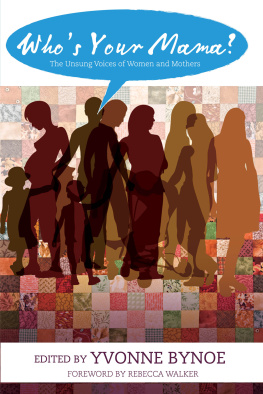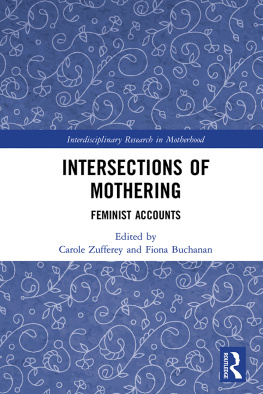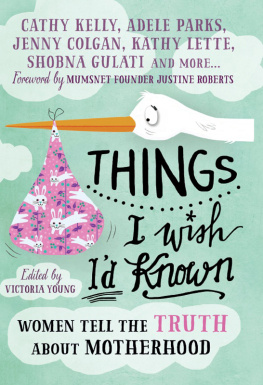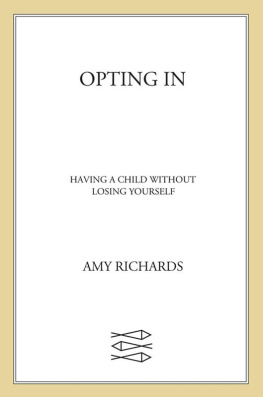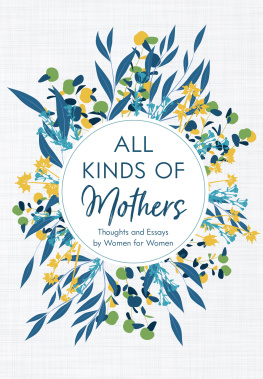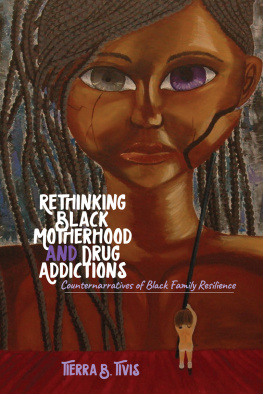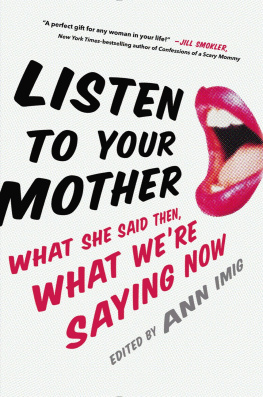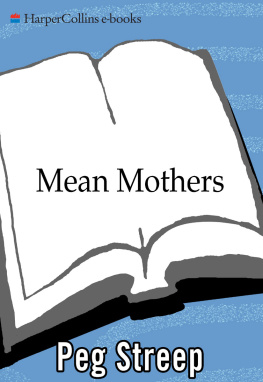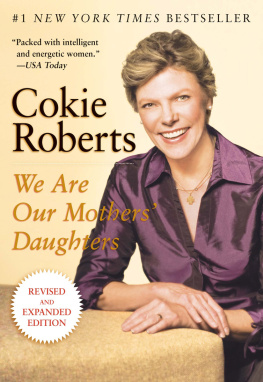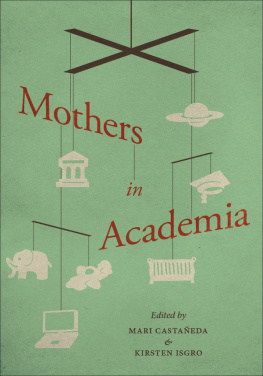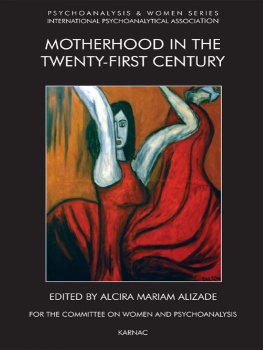Contents
Guide


If we stand tall, it is because we stand on the backs of those who came before us.
Yoruba proverb

in rememberance of
CORALEE EVANS BYNOE
MARGARET CLARKE BYNOE
NELLIE WHITE EVANS


Copyright 2009 by Yvonne Bynoe. All rights reserved under International and Pan-American Copyright Conventions.
An Unnatural Woman was first published in Rise Up Singing: Black Women Writers on Motherhood. Edited by Cecelie S. Berry (Doubleday: New York, 2004)
Library of Congress Cataloging-in-Publication Data is available upon request.
ISBN: 978-1-59376-239-1
Cover design by Amy Woloszyn
Interior design by Beth Kessler, Neuwirth and Associates, Inc.
Printed in the United States of America
Soft Skull Press
1140 Broadway, Suite 704
New York, NY 10001
www.softskull.com
www.counterpointpress.com
Parenthood is complex . As mothers, we have to wade through conflicting ideas about the benefits of motherhood itself, the various myths and methodologies of giving birth, and the varied schools of parenting, from attachment theory to timed feedings and effective discipline techniques. No matter how much (or how little) money we have, we rarely feel financially ready to have a child. And because there are so many unwanted children in the world, we sometimes feel we should redirect our energies. If we really cared about saving the world, we think to ourselves, we would forgo our own offspring, and adopt another mothers child.
Its hard to fight the realities of modern life. There are a few positive signs, but the world seems to be falling apart as fast as we put it back together. The predictions of one hundred year wars, multi-generational economic instability, and an onslaught of incurable diseases are overwhelming. One article about children kidnapped and sold into slavery can put even the most certain mom-to-be on the path of ambivalence. The mention of two million men of color languishing in American prisons is reason enough for a woman of color to stock up on birth control pills. Add a few GMOs and IEDs, a memo on global debt from the IMF, and one late night encounter with the INS and its a miracle anyone chooses to have a child at all.
But we do, which means we have to do more than affirm our choice to become mothers. We have to demonstrate how and why we moved forward; we have to prove we are worthy and, in the face of all other indicators, that we have made a good decision. Which, of course, is impossible. Ive yet to meet a woman who can logically explain her longing to have a child. Looking down at the flesh of our flesh, blood of our blood, most of us have to shake our heads. Our decision to get on the roller coaster is totally, completely, one hundred percent irrational. Its physical, spiritual, and psychobiological. It is beyond this world.
We want to have a baby, but it is more than that. Consciously or not, we want to let go of who we are now, our own random conglomeration of cells and carefully orchestrated lived experience, and see who we can become. We want to fire up the catalytic converter, the human spaceship, and change! Its a shame, a missed opportunity, that giving birth and having children is considered so ordinary, so normal in our culture. Because when we acknowledge what a huge, ginormous deal it is, a world opens. Inexplicably powerful, irrevocably altering, to become a mother is to step into the mystery. It is to acknowledge there is something else going on beneath the surface of everyday existence.
In our drive to make life better for our babies, we touch the superhuman. In the unconditional love we feel for our children, we get a grip on what life is all about. Invested in our future like never before, and with the ability now to see the past, present, and future as one continuous stream, we become, in a sense, immortal. And in our sudden recognition that motherhood has been happening since the dawn of time, we develop a profound respect for every mother who offers so much of her lifes energy, and so doing, ensures the survival of our species.
Are you with me? Forget six hundred dollar strollers and ten thousand dollar a year nursery schools. Forget food stamps and emergency-room-only health care. Forget LSD and UFOs. When motherhood is a choice (and sometimes even when it isnt), crossing over is powerful.
Motherhood is the real deal.
And like all supernatural experiences, the mystical ride of motherhood seeks corroboration. Am I insane, one mother asks another, speaking of the range of feelings that come up in the course of an ordinary day. The guilt, bliss, exasperation, love, terror, is this normal? Insulated in our domestic spheres, we long to know we are not alone in the intensity of our feelings, and especially, in the depth of our struggle to keep it all together. Our struggle to bring home the bacon, fry it up in a pan, and make sure our children know why Mama cant stop everything to build a car wash out of a box of Legos.
Thats usually where extended family comes in. And the gaggle of moms spreading their blankets and breaking out the rice crackers at the playground. And the long trips down mommy-portals on the internet. Its also where writers come in, and books. Disembodied voices and tactile, reassuring objects keep us company and give us room for reflection. We see ourselves in the pages we choose, and feel less alone. Somebody gets it, gets us. But what if your extended family isnt supportive of your partners gender, or all the moms at the playground are richer or poorer or speak a different language? What if all the books about motherhood are written for mothers with whom you have very little in common?
Thats when you have to intensify your search, and if youre lucky, find a book like this one.
Im thrilled to join Yvonne Bynoe and the talented essayists included in this illuminating collection about contemporary motherhood. Im thrilled because this book is so necessary, and because it is also so good. Im thrilled because any woman who has birthed, lost, wants, or vehemently decided against having a child will find herself sensitively represented in these pages. And every woman, regardless of race, class, sexuality, or religion, will find some place, some literary nook, that completely affirms her choices.
Unlike many popular books on motherhood, this collection doesnt shy away from mothers who have temporarily abandoned their children while they try to better themselves, or who try hard to keep their families together only to be hit with economic devastation and unanticipated divorce. Whos Your Mama doesnt sugar coat or whitewash the realities of contemporary motherhood. Bynoe is not afraid to say that we miscarry, worry about our childrens racial identity, give up on breastfeeding because the office is not conducive to pumping. She gets that a whole lot of women swallow middle class assumptions and make our way to the AFDC office for food stamps.
And she also gets that, in the midst of calamity, we show up every day to be the best mothers we can. Over and over again, the essayists in the book break it down: at the end of the day, its about our kids. They take so much from usenergy, freedom, moneybut they give so much, too. They demand honesty, tenderness, emotional competency, and sound financial planning. Lets face it. If were awake to whats really going on in this human experience called motherhood, raising a child is the ultimate finishing school. If we let them, our kids can make us so much better.

